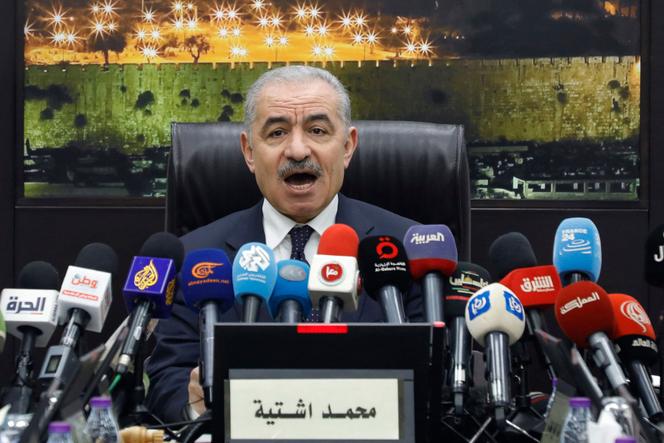


A resignation to buy time. While Israel is waging one of the most brutal wars of the 21st century in Gaza, which has claimed the lives of some 30,000 Palestinians, the majority of them women and children, Palestinian Authority President Mahmoud Abbas, who has been virtually silent since October 7, 2023, prompted his prime minister, Mohammad Shtayyeh, to tender his resignation on Monday, February 26.
"We're changing people, but in terms of substance, there's nothing new," said Mohammed Daraghmeh, a political scientist in Ramallah. "This measure is the result of internal and external pressure. The United States called for the revitalization of the Palestinian Authority in the first weeks of the Gaza conflict, to prepare for the post-war period. Internally, Fatah leaders met in Doha. Mahmoud Abbas was concerned by these actions, which seemed designed to short-circuit him. He acted in a preventive manner."
The Israeli media claim that the Palestinian Authority is making the formation of a new government conditional on the withdrawal of Israeli armed forces from the Gaza Strip, a national agreement by all Palestinian factions, a halt to raids in the West Bank and the payment of taxes collected by Israel on its behalf, part of which has been blocked for several months by Israeli Finance Minister Bezalel Smotrich.
These demands are largely unrealistic in the current context, but the aim is for the Palestinian Authority to regain control over Hamas, which has never been so popular in the West Bank. In a poll conducted in November and December 2023, 88% of Palestinians, surveyed throughout the occupied territories, said they were in favor of Abbas's resignation. And 44% of respondents in the West Bank said they supported Hamas. According to a Palestinian observer who wished to remain anonymous, "The timing for announcing the government's resignation was particularly bad." It was the day, eagerly awaited by Palestinians, when Israel was due to present a report to the International Court of Justice, attesting to the steps taken to halt the "real and imminent risk" of genocide in Gaza, highlighted by the Hague judges at the end of January.
Shtayyeh's resignation was an opening gesture to the United States, which sees a "revitalized" Palestinian Authority and the formation of a government of "technocrats" as a way out of the current crisis. Ironically, Shtayyeh, the former head of an organization dedicated to the development of the Palestinian territories, was already considered a technocrat by Western governments and international donors, who placed confidence in him.
You have 47.28% of this article left to read. The rest is for subscribers only.
